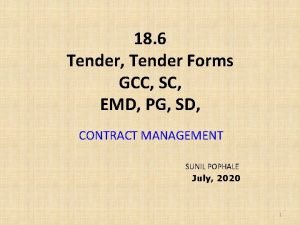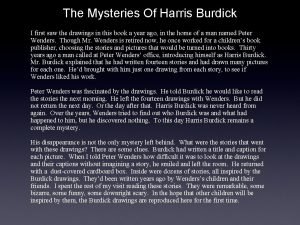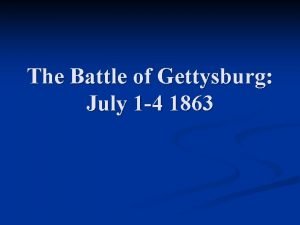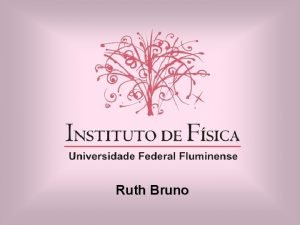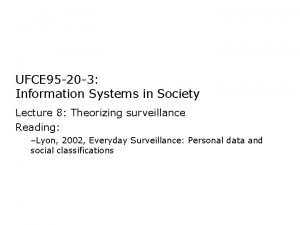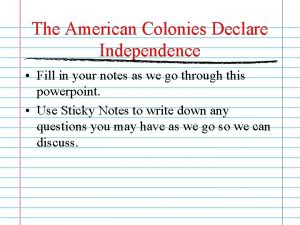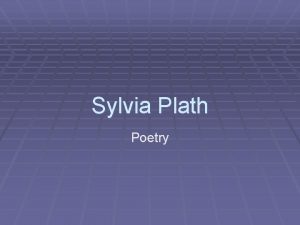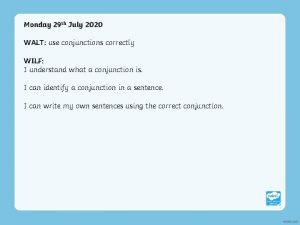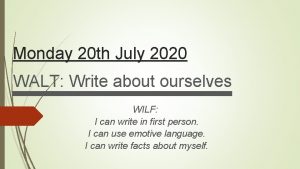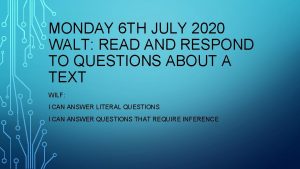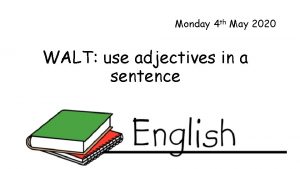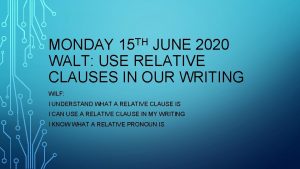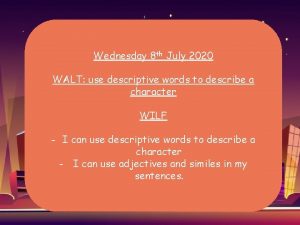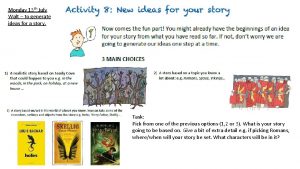Monday 13 th July 2020 WALT use the












- Slides: 12

Monday 13 th July 2020 WALT: use the perfect form of verbs WILF I know what the past perfect tense is I know what the present perfect tense is I know what the future perfect tense is

Perfect tenses generally focus on how a past action affects the present. For example, “I have already eaten. ”

Past perfect Rule: Use 'had' plus a past tense verb. The man had walked to the shop. The bird table had eaten the banana. *You can also use the negative sense: 'had not'

Which is the past perfect sentence? 1) The man was walking to the swimming baths. 2) Danny had owned a helicopter. 3) Had we not known about the traffic jam, we might not have made it to the T-Rex in time.

Present perfect Rule: Use 'have/has' plus a past tense verb. The man has walked to the shop. The bird tables have eaten the banana. *You can also use the negative sense: 'have not', 'has not'

Which is the present perfect sentence? 1) The man will have been eating worms. 2) The banana has struggled with belly ache. 3) An apple a day keeps the doctor away.

Future perfect Rule: Use 'will/won't have' plus a past tense verb. The man will have walked to the shop. The bird tables won't have eaten the banana.

Which two the future perfect sentence? 1) The worms won't have eaten lunch. 2) I had walked to school. 3) An apple a day keeps the doctor away.

Perfect tenses are more precise than 'simple' tenses. Simple tenses just give us a general idea as to whether something happened in the past present or future. Simple past: I walked to school. Simple present: She is green.

Past Perfect: had + past tense verb Present Perfect: has/have + past tense verb Future: will/won't + past tense verb Activity You are going to write 'Perfect Stories' using the template on the last slide. These are three-sentence stories written in the perfect tenses. See the next slide for examples. You write a sentence in the past perfect tense; then a sentence in the present perfect tense; and finally a sentence in the future perfect tense. You will draw a picture for each sentence. Be as random as you can.

Example: The banana had not eaten in days. The banana has eaten an extremely hot chili. The banana will have regretted this decision.

Story 1 Story 2

